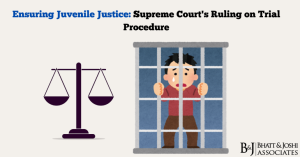A Comprehensive Analysis of Mandatory Pre-Litigation Mediation in Commercial Disputes: Insights from Supreme Court Rulings
Introduction
The Supreme Court of India, through its landmark judgments in M/s Patil Automation Private Limited vs Rakheja Engineers Private Limited and Yamini Manohar vs T K D Keerthi, has emphasized the mandatory nature of pre-litigation mediation as outlined under Section 12A of the Commercial Courts Act, 2015. This mandate signifies a judicial endorsement of alternative dispute resolution (ADR) mechanisms, particularly mediation, as a first step in resolving commercial disputes.

The Legislative Framework: Section 12A of the Commercial Courts Act
Before delving into the judgments, it’s crucial to understand the legislative text that forms the basis of this discourse. Section 12A of the Commercial Courts Act, 2015, stipulates:
“12A. Pre-Institution Mediation and Settlement.— (1) A suit, which does not contemplate any urgent interim relief under this Act, shall not be instituted unless the plaintiff exhausts the remedy of mediation in accordance with such manner and procedure as may be prescribed under this Act.”
This provision underscores the mandatory requirement for parties to engage in mediation before proceeding to litigation, aiming to facilitate amicable settlements and reduce the burden on courts.
Mandatory Nature of Mediation: Insights from Supreme Court Rulings
M/s Patil Automation Private Limited vs Rakheja Engineers Private Limited: A Landmark Verdict
In M/s Patil Automation Pvt. Ltd. & Ors. v. Rakheja Engineers Pvt. Ltd., the Supreme Court made a significant observation regarding the mandatory nature of Section 12A:
“The apex court noted that the design and scope of the Act…makes it clear that the Parliament intends to give the scope of pre-litigation mediation a mandatory character.”
This ruling highlighted that the intention behind Section 12A is unequivocal—mediation is not optional but a prerequisite for filing a suit in commercial matters, barring cases requiring urgent interim relief.
Yamini Manohar vs T K D Keerthi: Affirming Mandatory Mediation
Similarly, in Yamini Manohar vs T K D Keerthi, the Supreme Court reinforced the critical role of pre-litigation mediation, emphasizing its importance in the dispute resolution process. The Court’s decision underscored that bypassing this step could only be considered if the suit explicitly demands urgent interim measures, which must be clearly pleaded by the plaintiff.
The central issue in Yamini Manohar vs T K D Keerthi revolved around the interpretation and application of Section 12A of the Commercial Courts Act, which necessitates parties to engage in mediation before approaching the court for commercial disputes. The contention arose when Yamini Manohar proceeded to file a suit without adhering to the mandated pre-litigation mediation process, prompting a legal debate on the exceptions to this requirement and the overall impact of bypassing such a crucial step.
“Pre-litigation mediation is necessary unless the suit contemplates urgent interim relief… The judgment observes that the meaning of the word ‘contemplate’ or urgent interim relief we need not dwell upon it.”
The contention arose when Yamini Manohar proceeded to file a suit without adhering to the mandated pre-litigation mediation process, prompting a legal debate on the exceptions to this requirement and the overall impact of bypassing such a crucial step.
“Pre-litigation mediation is necessary unless the suit contemplates urgent interim relief… The judgment observes that the meaning of the word ‘contemplate’ or urgent interim relief we need not dwell upon it.”
The Supreme Court’s Analysis and Rationale
The Supreme Court’s analysis in this case was centered on the legislative intent behind Section 12A, aiming to decongest court dockets and foster a culture of settlement and negotiation among disputing parties. By critically examining the scope and implications of pre-litigation mediation, the Court sought to balance the statutory mandate with the practical realities of commercial disputes that may require immediate judicial intervention.
In its judgment, the Court highlighted that the exception for suits contemplating urgent interim relief was not a carte blanche to bypass the mediation process altogether. Instead, it emphasized that parties must judiciously assess the necessity for such relief and cannot unilaterally decide to skip mediation based on a broad interpretation of “urgent”.
“The import of the provision is to mandate pre-litigation mediation in an effort to resolve disputes amicably before resorting to litigation, thereby promoting a more collaborative approach to dispute resolution.”
Implications of the Judgment
The Supreme Court’s decision in Yamini Manohar vs T K D Keerthi carries significant implications for the practice of commercial litigation in India. Firstly, it reaffirms the judiciary’s commitment to alternative dispute resolution (ADR) as a precursor to litigation, thereby encouraging parties to explore amicable settlement options. Secondly, it clarifies the ambit of exceptions to pre-litigation mediation, ensuring that the provision is not misinterpreted or misused to undermine the statute’s objectives.
Moreover, this judgment serves as a cautionary note to litigants and legal practitioners about the necessity of adhering to procedural mandates, reinforcing the idea that mediation should not be viewed as a mere procedural formality but as a genuine opportunity to resolve disputes outside the courtroom.
The Supreme Court’s Analysis and Rationale
The Supreme Court’s analysis in this case was centered on the legislative intent behind Section 12A, aiming to decongest court dockets and foster a culture of settlement and negotiation among disputing parties. By critically examining the scope and implications of pre-litigation mediation, the Court sought to balance the statutory mandate with the practical realities of commercial disputes that may require immediate judicial intervention.
In its judgment, the Court highlighted that the exception for suits contemplating urgent interim relief was not a carte blanche to bypass the mediation process altogether. Instead, it emphasized that parties must judiciously assess the necessity for such relief and cannot unilaterally decide to skip mediation based on a broad interpretation of “urgent”.
“The import of the provision is to mandate pre-litigation mediation in an effort to resolve disputes amicably before resorting to litigation, thereby promoting a more collaborative approach to dispute resolution.”
Analyzing the Implications of Mandatory Mediation
The Rationale Behind the Requirement
The judgments elucidate the rationale for mandatory mediation, aiming to encourage out-of-court settlements and expedite the resolution of commercial disputes. This approach is aligned with global best practices and supports India’s objective to enhance the ease of doing business by providing a faster, cost-effective alternative to litigation.
Impact on Commercial Litigation
These Supreme Court decisions mark a pivotal shift in how commercial disputes are approached in India. By mandating mediation, the judiciary seeks to foster a dispute resolution culture that prioritizes negotiation and settlement over adversarial litigation. This not only benefits the parties involved by potentially saving time and resources but also contributes to the judicial economy by alleviating the caseload of commercial courts.
The Challenge of Implementing Mandatory Mediation
While the mandate of Section 12A is clear, its practical implementation poses challenges, including ensuring the availability of trained mediators, creating awareness among commercial entities about the benefits of mediation, and integrating mediation proceedings with the court process seamlessly.
Conclusion: Envisioning a Future of Expedited Dispute Resolution
The emphasis on mandatory pre-litigation mediation as articulated in the judgments of M/s Patil Automation Private Limited vs Rakheja Engineers Private Limited and Yamini Manohar vs T K D Keerthi heralds a new era in commercial dispute resolution in India. It underscores the judiciary’s commitment to alternative dispute resolution mechanisms as an indispensable first step in the litigation process for commercial disputes.
By mandating mediation under Section 12A of the Commercial Courts Act, the Supreme Court aims to ensure that commercial disputes are resolved with the highest level of expedition, thus enhancing India’s appeal as a business-friendly jurisdiction. This legislative and judicial initiative not only sets the stage for a more efficient resolution of commercial disputes but also aligns India with international dispute resolution paradigms, marking a significant stride towards achieving judicial efficiency and promoting the ease of doing business.









